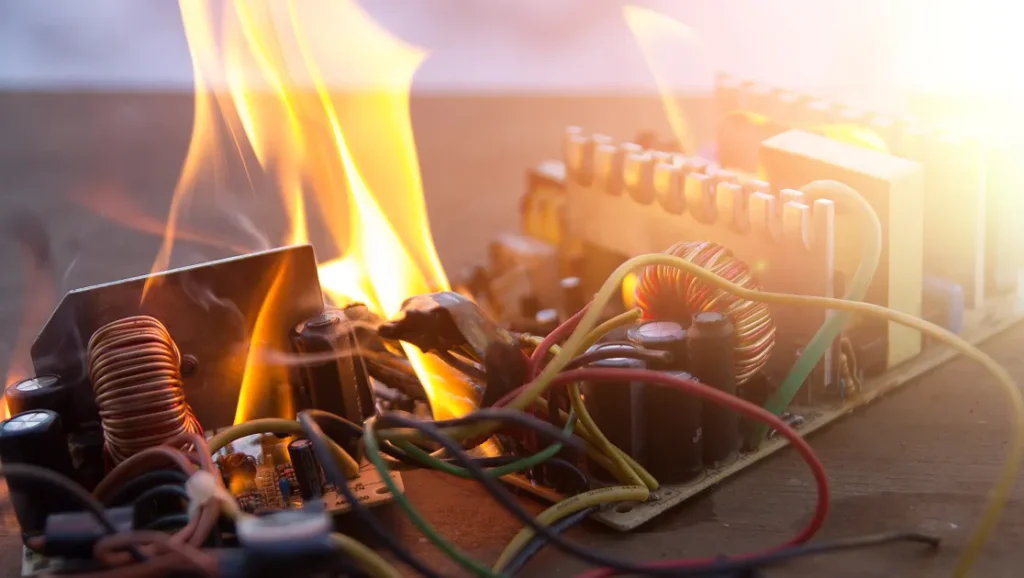Every year, thousands of people are injured in all-terrain vehicle (ATV) accidents across the United States, with estimates nearing 135,000 injuries annually. Tragically, nearly 400 people die each year due to ATV crashes and rollovers.
In 2023 alone, there were over 498 all-terrain vehicle related fatalities nationwide, with many involving rollovers and a lack of protective gear. These accidents can result in life-altering injuries and devastating losses. Given the frequency and severity of these incidents, it’s important for accident victims to understand their legal rights and options.
When You Should Call An Attorney
If you or a loved one has been injured in an ATV or Polaris rollover accident, especially if caused by defects, dangerous terrain, or reckless driving, contact an experienced attorney promptly. The personal injury lawyers at Breit Biniazan can help collect evidence, determine liability, and protect your right to fair compensation.
What Causes ATV and Polaris Rollover Accidents?
ATV rollovers are a leading cause of severe injuries and fatalities involving ATVs like Polaris models. These accidents often happen due to a defective vehicle design, missing or inadequate safety features, and mechanical failures such as brake or steering malfunctions.
Reckless driving behaviors like speeding, inexperience, and driving under the influence further increase the risk. Additionally, dangerous terrain conditions—such as steep slopes, uneven ground, and hidden obstacles—can cause rollovers even for careful riders. Recognizing these causes is essential to understanding liability and preventing tragic outcomes.
Product Liability Concerns
ATV rollovers often involve defective equipment or unsafe vehicle design. Common product defects include:
- Defective design leading to instability and increased rollover risk
- Faulty roll bars that fail to protect passengers
- Defective safety mesh intended to prevent ejection or injury
- Tire blowouts caused by defective tire design, improper air pressure, or incorrect mounting
- Fuel line leaks creating fire hazards
Lack of Adequate Safety Warnings
Many ATV rollover accidents happen because there are not enough safety warnings or important protective parts. When manufacturers don’t give clear instructions or remove safety features, riders may not know the risks or how to use the vehicle safely. This makes accidents and injuries more likely.
Steering or Brake Malfunctions
Problems with the steering or brakes of an ATV can cause serious accidents, including rollovers. When brakes fail, riders may not be able to stop the vehicle in time to avoid a crash or dangerous situation. Steering defects can make it difficult to control the ATV, causing it to swerve unexpectedly or lose balance.
These mechanical malfunctions put riders at great risk, especially on rough or uneven terrain where precise control is necessary to stay safe. Proper maintenance and design are critical to prevent these failures and keep riders protected.
Reckless Driving and Racing
Many ATV rollovers happen because drivers don’t have the skills or training needed to stay balanced and control the vehicle. Sometimes, owners let unqualified people ride their ATVs, which can be incredibly dangerous. Going too fast, driving under the influence of drugs or alcohol, and carrying too many passengers also increase the chance of rollovers.
Dangerous Terrain
ATVs are often operated in hazardous environments that increase accident risk:
- Poorly maintained riding trails and off-road parks
- Private properties and farms with uneven paths
- Rural roads and utility paths not designed for ATVs
- Construction or work sites
- Steep slopes or hills causing loss of control
- Rocky, muddy, and uneven ground surfaces
- Hidden obstacles like tree roots, holes, or water patches
Even riding on paved areas such as parking lots has caused injuries. Awareness of terrain risks is crucial to accident prevention.
Injuries from ATV Rollovers Can Be Life-Changing
Recreational riders have long suffered severe injuries related to ATV rollovers, burn hazards from design flaws, and crushing accidents. Common injuries include:
- Spinal Cord Injuries and Paralysis: Rollover accidents frequently cause catastrophic spinal cord trauma, resulting in partial or full paralysis.
- Crush Injuries and Amputations: Statistics show most severe fractures, crush injuries, surgeries, and amputations stem from rollover incidents where passengers are thrown or pinned beneath the vehicle.
- Brain Injuries from Lack of Protective Structures: Traumatic brain injuries (TBIs) are common when passengers lack adequate protective gear. While ATVs typically do not include built-in protective structures, aftermarket safety equipment such as floor guards, fender guards, and fender armor are available to reduce injury risk. Helmet use is critical to prevent TBIs.
Legal Options for Victims of ATV and Polaris Rollover Accidents
ATV and Polaris vehicles have been subject to widespread recalls for safety defects over many years. In 2023 alone, Polaris recalled over 27,000 recreational off-road vehicles due to a dangerous clutch defect that caused parts to fracture and eject, creating significant fire and injury hazards. This recall is part of a long history of safety issues including defective designs, fire risks, and malfunctioning components that have led to numerous injuries, fatalities, and product liability lawsuits against Polaris.
Victims of ATV and Polaris rollover accidents often have legal grounds to pursue claims against manufacturers for negligence and product defects, especially when these recalls and known hazards were ignored or inadequately addressed. Holding manufacturers accountable can help injured victims seek compensation for medical bills, lost wages, pain and suffering, and sometimes punitive damages aimed at correcting negligent corporate behavior.
Establishing Liability After an ATV Rollover
Potentially liable parties include:
- Negligent riders operating recklessly or under influence
- Property owners who allow unsafe riding conditions on their land
- Manufacturers responsible for defective ATVs or safety equipment
- Event organizers who fail to enforce proper safety measures
Proving Product Defects and Manufacturer Negligence
Many product liability lawsuits have been filed against ATV manufacturers for design defects, failure to warn, and defective safety components. Arguing that these defects caused your injuries is often complex and requires a knowledgeable ATV injury attorney.
Establishing product defects and manufacturer negligence requires showing:
- The ATV or part had a defect in design, manufacturing, or warnings
- The defect existed before the accident occurred
- The defect caused or contributed to the injury or rollover
- The manufacturer failed to address or warn about the defect despite knowledge or reasonable awareness
Successfully proving these points can enable victims to recover damages for medical costs, pain and suffering, lost income, and sometimes punitive damages aimed at holding reckless manufacturers accountable.
Pursuing Damages for Medical Care, Pain, and Lost Wages
Victims may seek compensation for:
- Medical expenses related to emergency care, surgery, rehabilitation, and ongoing treatment
- Lost wages and reduced future earning capacity resulting from disabilities
- Pain, suffering, and emotional distress caused by the accident
- Property damage to the vehicle and personal belongings
- In some cases, punitive damages meant to punish egregious misconduct by manufacturers or other responsible parties
Get in Touch With Our ATV Injury Lawyers Today
If you or a loved one has been injured in an ATV or Polaris rollover accident, contact Breit Biniazan for experienced legal help. We offer free consultations to evaluate your case, explain your rights, and fight for the compensation you deserve.
















